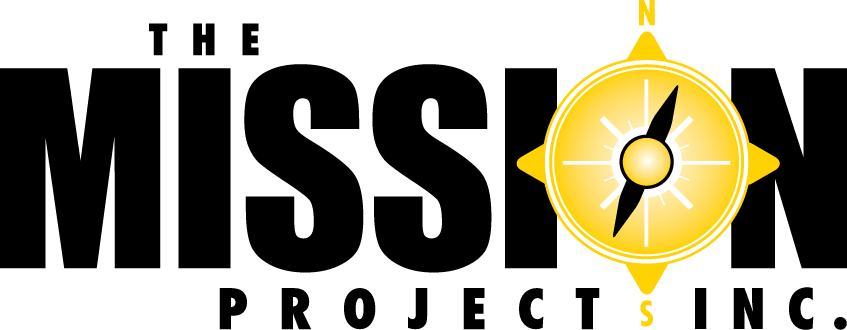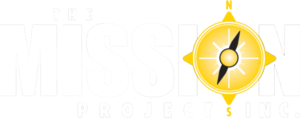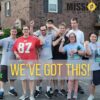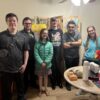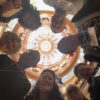At The Mission Project, we believe that individuals with developmental disabilities deserve a life filled with independence, inclusion, and opportunities for growth. Our program is centered around creating a vibrant community where participants can thrive and reach their full potential. Through our various initiatives and partnerships, we provide support in different areas of their lives. We are passionate about the 7 pillars that are a core of what we do here at The Mission Project and form a foundation for how we make decisions.
The Seven Pillars
Welcome to Life in Community: Embracing Independence and Inclusion – Overcoming Barriers
Pillars
Life in Community
Development Disabilities Does Not Mean a Cloistered Life
- Participants live in apartment communities of their choosing.
- Opportunity to self direct; making decisions with autonomy.
- Freedom and access afforded by a walkable community.
- Volunteer activities – both by and for participants.
- Collaboration with JCCC Clear Program, Sylvester Powell Community Center, Down Syndrome Innovations, Rockhurst Occupational Therapy Department, Kansas Center on Autism Research and Training
- Community Education
01
Inclusive Employment
Transportation and Job Skills Support
- Less than one third of working age individuals with IDD hold jobs. All Mission Project participants maintain jobs, and many have held the same job for a number of years.
- Our transportation group gets our participants to and from jobs on time every day.
- Job coaching and skills development part of our program activities.
02
Translational Coaching
Autonomous Adults with Support as Needed
- Staff focus on advancing social skills, conflict resolution, impulse control, self advocacy and self expression.
- Individualized goal setting and accountability, problem solving and increasing self confidence to make good decisions.
- Safety practices and drills.
- Creating a failure free environment.
- Building human capital.
- Mentorship by graduate students.
- PCA Support.
03
Family Partnership
Families Matter in the Mission Project
- Families support all the participants through natural relationships.
- Families support each other through monthly family meetings and informal connections.
- Families volunteer over 5,000 hours each year to the Mission Project.
04
The Social Self
Friendships foster self-confidence and improve life skills
- Individuals with IDD can be isolated in some residential settings.
- Friendships grow from shared interests and experiences in a variety of clubs, where Mission Project participants direct the gatherings.
- Coaching on building reciprocal friendships.
- Conversation trios.
- Informal gatherings.
05
Healthy Choices
Facing mental and physical health risks head on
- IDD individuals are at greater risk for cardiovascular disease, sensory deficits, falls/mobility issues, depression, anxiety and Alzheimers.
- Integration of healthy activities in a social context SUCH AS the Walking Club and the Garden Club.
- Individualized support for fitness and exercise.
- Nutrition classes.
- Fitness training.
06
Lifelong Learning
Classes, conversations, experiences...
- Learning takes many forms. Watching birds at a feeder. Canoeing on a quiet lake.
- Experiential learning taps into hidden interests and abilities in drama and art classes, the history club, the world dining club, and travel clubs. Our participants learn to use technology to better manage their lives.
